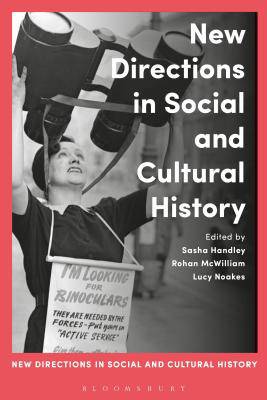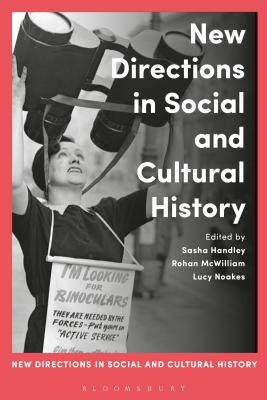
- Retrait gratuit dans votre magasin Club
- 7.000.000 titres dans notre catalogue
- Payer en toute sécurité
- Toujours un magasin près de chez vous
- Retrait gratuit dans votre magasin Club
- 7.000.0000 titres dans notre catalogue
- Payer en toute sécurité
- Toujours un magasin près de chez vous
New Directions in Social and Cultural History
203,95 €
+ 407 points
Description
What does it mean to be a social and cultural historian today? In the wake of the 'cultural turn', and in an age of digital and public history, what challenges and opportunities await historians in the early 21st century? In this exciting new text, leading historians reflect on key developments in their fields and argue for a range of 'new directions' in social and cultural history. Focusing on emerging areas of historical research such as the history of the emotions and environmental history, New Directions in Social and Cultural History is an invaluable guide to the current and future state of the field.
The book is divided into three clear sections, each with an editorial introduction, and covering key thematic areas: histories of the human, the material world, and challenges and provocations. Each chapter in the collection provides an introduction to the key and recent developments in its specialist field, with their authors then moving on to argue for what they see as particularly important shifts and interventions in the theory and methodology and suggest future developments. New Directions in Social and Cultural History provides a comprehensive and insightful overview of this burgeoning field which will be important reading for all students and scholars of social and cultural history and historiography.
The book is divided into three clear sections, each with an editorial introduction, and covering key thematic areas: histories of the human, the material world, and challenges and provocations. Each chapter in the collection provides an introduction to the key and recent developments in its specialist field, with their authors then moving on to argue for what they see as particularly important shifts and interventions in the theory and methodology and suggest future developments. New Directions in Social and Cultural History provides a comprehensive and insightful overview of this burgeoning field which will be important reading for all students and scholars of social and cultural history and historiography.
Spécifications
Parties prenantes
- Editeur:
Contenu
- Nombre de pages :
- 292
- Langue:
- Anglais
- Collection :
Caractéristiques
- EAN:
- 9781472580801
- Date de parution :
- 22-02-18
- Format:
- Livre relié
- Format numérique:
- Genaaid
- Dimensions :
- 156 mm x 234 mm
- Poids :
- 585 g

Les avis
Nous publions uniquement les avis qui respectent les conditions requises. Consultez nos conditions pour les avis.





